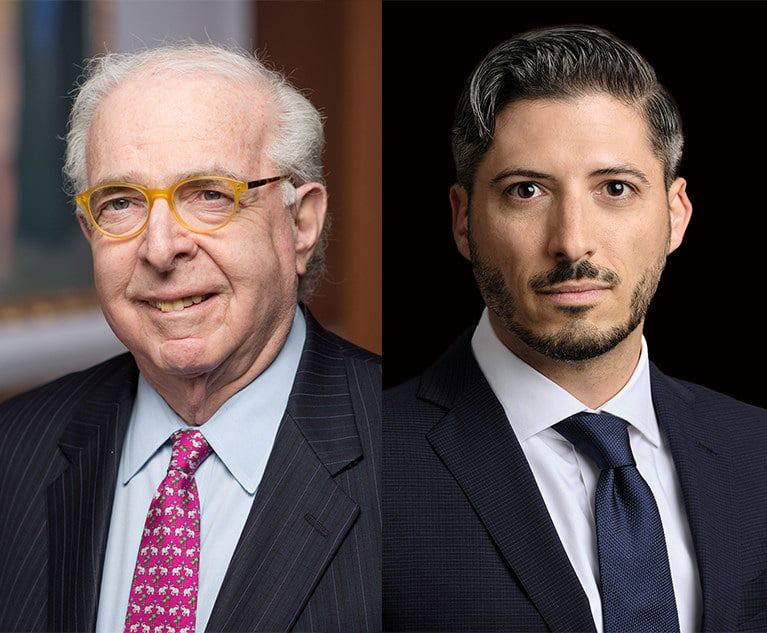 Credit: Adobe Stock
Credit: Adobe Stock Workplace Conflict Resolution Through Mediation and Arbitration
Failure to address unhealthy conflict allows the situation to fester, injuring morale and, more importantly, creating an environment in which conflict may dramatically escalate into major conflagration.
March 10, 2023 at 11:12 AM
7 minute read
Conflict in the workplace is natural and can be constructive. Through communication of different points of view and perspectives, co-workers may gain a greater degree of insight into the issues at hand and increase the options that may be available to resolve difficult issues. Healthy conflict leads to candid discussions in which co-workers may challenge themselves to think creatively and open up to learn about valuing and respecting the opinions of others.
On the other hand, it is almost inevitable, and a byproduct of the human condition, that conflict may trigger emotional reactions. Anger, resentment, and hostility may be produced even where discussions are conducted in good faith. Unhealthy conflict may be occasioned by the commission of inappropriate workplace behavior, such as undesired advances, unconsented touching, or the use of discriminatory practices in making workplace decisions. Failure to address unhealthy conflict allows the situation to fester, injuring morale and, more importantly, creating an environment in which conflict may dramatically escalate into major conflagration.
This content has been archived. It is available through our partners, LexisNexis® and Bloomberg Law.
To view this content, please continue to their sites.
Not a Lexis Subscriber?
Subscribe Now
Not a Bloomberg Law Subscriber?
Subscribe Now
NOT FOR REPRINT
© 2025 ALM Global, LLC, All Rights Reserved. Request academic re-use from www.copyright.com. All other uses, submit a request to [email protected]. For more information visit Asset & Logo Licensing.
You Might Like
View All
Art of the Settlement: Trump Attorney Reveals Strategy in ABC Lawsuit

Evolving Legal Standards to Combat Disqualification of Arbitrators for Failing to Disclose Conflicts of Interest
8 minute read
Court of Appeals Holds that Arbitration Agreements Can Be Formed Through ‘Clickwrap’ Process
8 minute read
Trending Stories
- 1We the People?
- 2New York-Based Skadden Team Joins White & Case Group in Mexico City for Citigroup Demerger
- 3No Two Wildfires Alike: Lawyers Take Different Legal Strategies in California
- 4Poop-Themed Dog Toy OK as Parody, but Still Tarnished Jack Daniel’s Brand, Court Says
- 5Meet the New President of NY's Association of Trial Court Jurists
Who Got The Work
J. Brugh Lower of Gibbons has entered an appearance for industrial equipment supplier Devco Corporation in a pending trademark infringement lawsuit. The suit, accusing the defendant of selling knock-off Graco products, was filed Dec. 18 in New Jersey District Court by Rivkin Radler on behalf of Graco Inc. and Graco Minnesota. The case, assigned to U.S. District Judge Zahid N. Quraishi, is 3:24-cv-11294, Graco Inc. et al v. Devco Corporation.
Who Got The Work
Rebecca Maller-Stein and Kent A. Yalowitz of Arnold & Porter Kaye Scholer have entered their appearances for Hanaco Venture Capital and its executives, Lior Prosor and David Frankel, in a pending securities lawsuit. The action, filed on Dec. 24 in New York Southern District Court by Zell, Aron & Co. on behalf of Goldeneye Advisors, accuses the defendants of negligently and fraudulently managing the plaintiff's $1 million investment. The case, assigned to U.S. District Judge Vernon S. Broderick, is 1:24-cv-09918, Goldeneye Advisors, LLC v. Hanaco Venture Capital, Ltd. et al.
Who Got The Work
Attorneys from A&O Shearman has stepped in as defense counsel for Toronto-Dominion Bank and other defendants in a pending securities class action. The suit, filed Dec. 11 in New York Southern District Court by Bleichmar Fonti & Auld, accuses the defendants of concealing the bank's 'pervasive' deficiencies in regards to its compliance with the Bank Secrecy Act and the quality of its anti-money laundering controls. The case, assigned to U.S. District Judge Arun Subramanian, is 1:24-cv-09445, Gonzalez v. The Toronto-Dominion Bank et al.
Who Got The Work
Crown Castle International, a Pennsylvania company providing shared communications infrastructure, has turned to Luke D. Wolf of Gordon Rees Scully Mansukhani to fend off a pending breach-of-contract lawsuit. The court action, filed Nov. 25 in Michigan Eastern District Court by Hooper Hathaway PC on behalf of The Town Residences LLC, accuses Crown Castle of failing to transfer approximately $30,000 in utility payments from T-Mobile in breach of a roof-top lease and assignment agreement. The case, assigned to U.S. District Judge Susan K. Declercq, is 2:24-cv-13131, The Town Residences LLC v. T-Mobile US, Inc. et al.
Who Got The Work
Wilfred P. Coronato and Daniel M. Schwartz of McCarter & English have stepped in as defense counsel to Electrolux Home Products Inc. in a pending product liability lawsuit. The court action, filed Nov. 26 in New York Eastern District Court by Poulos Lopiccolo PC and Nagel Rice LLP on behalf of David Stern, alleges that the defendant's refrigerators’ drawers and shelving repeatedly break and fall apart within months after purchase. The case, assigned to U.S. District Judge Joan M. Azrack, is 2:24-cv-08204, Stern v. Electrolux Home Products, Inc.
Featured Firms
Law Offices of Gary Martin Hays & Associates, P.C.
(470) 294-1674
Law Offices of Mark E. Salomone
(857) 444-6468
Smith & Hassler
(713) 739-1250






